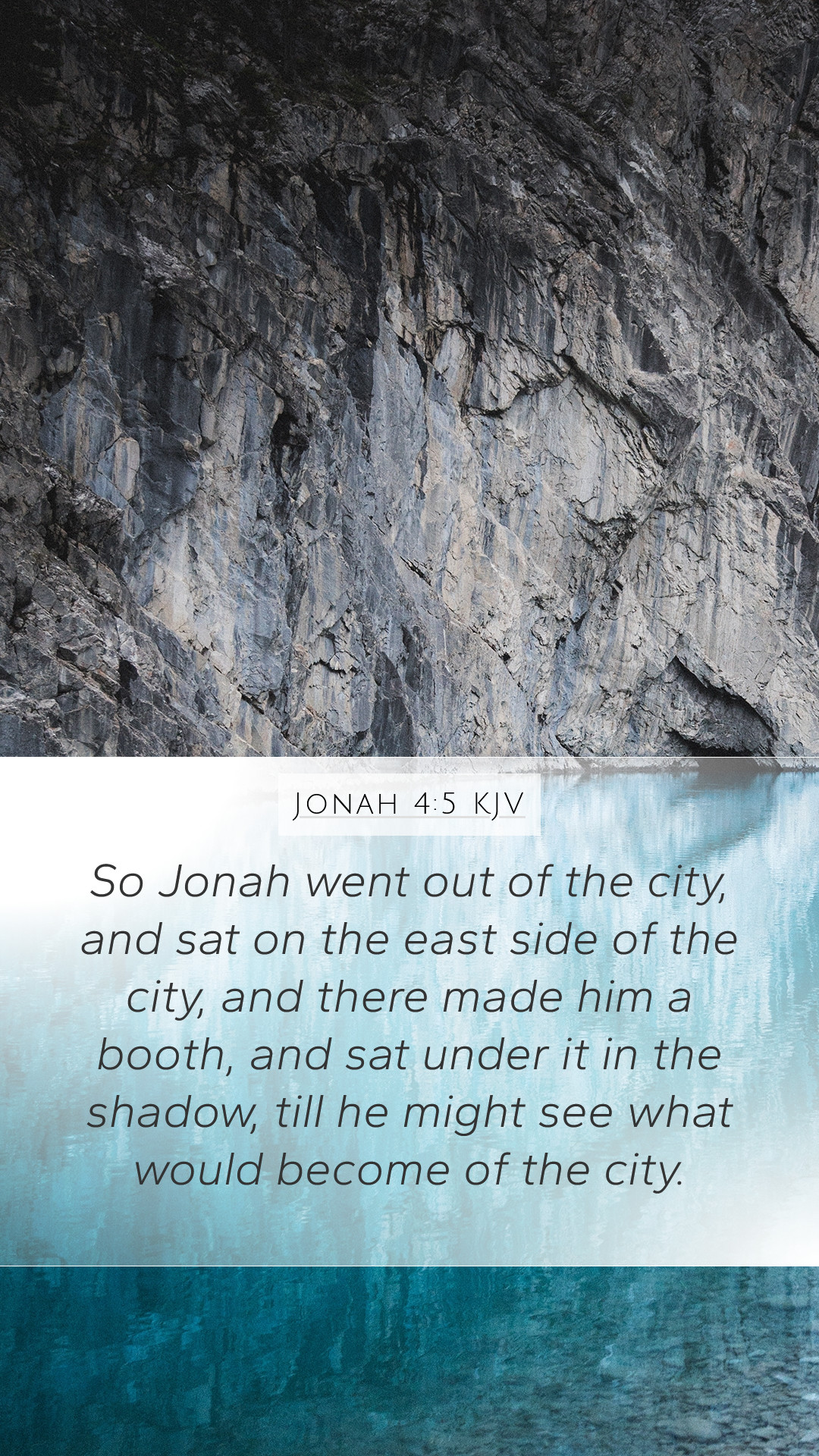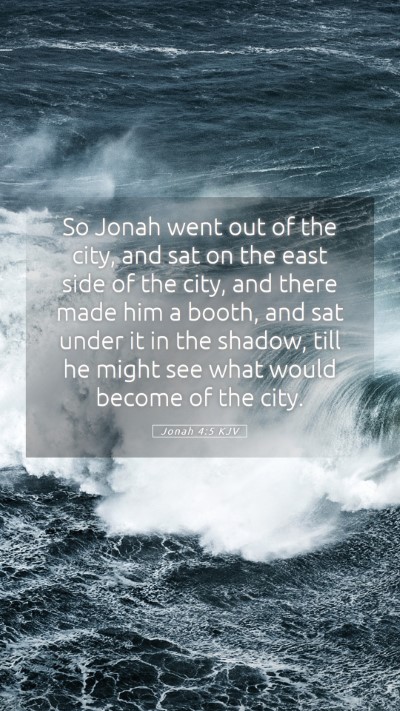Old Testament
Genesis Exodus Leviticus Numbers Deuteronomy Joshua Judges Ruth 1 Samuel 2 Samuel 1 Kings 2 Kings 1 Chronicles 2 Chronicles Ezra Nehemiah Esther Job Psalms Proverbs Ecclesiastes Song of Solomon Isaiah Jeremiah Lamentations Ezekiel Daniel Hosea Joel Amos Obadiah Jonah Micah Nahum Habakkuk Zephaniah Haggai Zechariah MalachiJonah 4:5 Meaning
What is the meaning of Jonah 4:5?
So Jonah went out of the city, and sat on the east side of the city, and there made him a booth, and sat under it in the shadow, till he might see what would become of the city.
Jonah 4:5 Bible Verse Meaning
Understanding Jonah 4:5
Bible Verse: Jonah 4:5 - "So Jonah went out of the city and sat on the east side of the city. There he made himself a shelter and sat under it in the shade, till he might see what would become of the city."
Overview
The meaning of Jonah 4:5 calls attention to Jonah's emotional state and his actions following God's mercy to Nineveh. In this verse, Jonah seeks a vantage point, possibly hoping for Nineveh's destruction. This reflects not only his anger and discontent but also a deeper struggle with understanding God's compassion.
Bible Verse Commentary
Insights regarding the Bible verse can be drawn from various public domain commentaries:
- Matthew Henry: Henry highlights Jonah's retreat from the city as a physical manifestation of his spiritual turmoil. Jonah's shelter symbolizes his desire to distance himself from what he perceived as divine injustice—God's mercy on the Ninevites after their repentance.
- Albert Barnes: Barnes emphasizes the significance of Jonah's location. By sitting to the east of the city, Jonah positions himself to witness any potential judgment. His actions reflect a profound disappointment with God's grace toward a people he deemed unworthy.
- Adam Clarke: Clarke notes the irony of Jonah's situation—while he expected punishment for Nineveh, God's mercy prevailed. Clarke points out that Jonah's waiting symbolizes humanity's struggle against divine benevolence, highlighting a common theme in prophetic literature.
Bible Study Insights
This verse invites deeper reflection on several themes relevant to biblical exegesis:
- The Nature of Divine Mercy: Jonah's response to God's forgiveness shows the tension between divine compassion and human expectation.
- Human Emotions in Spiritual Context: Jonah's anger and frustration serve as a reminder that prophets are not devoid of human feelings; their struggles mirror our own.
- Consequences of Disobedience: Jonah's choice to wait and watch reflects his own disobedience and poor understanding of God's expansive grace.
Application to Daily Life
Understanding Scripture is crucial for meaningful application. Jonah 4:5 teaches us:
- To reconsider our reactions to God's mercy in our lives and others'.
- The importance of humility in the face of divine decisions we do not understand.
- To engage in self-reflection about the judgments we impose on others based on their past actions.
Related Bible Cross References
For a deeper understanding, consider exploring the following related verses:
- Matthew 5:43-45 - "Love your enemies, and pray for those who persecute you."
- Jonah 3:10 - "When God saw what they did, how they turned from their evil ways, he had compassion."
- Lamentations 3:22-23 - "The steadfast love of the Lord never ceases; his mercies never come to an end."
Conclusion
Jonah 4:5 serves as a rich source for Scripture analysis, shedding light on the complexities of divine mercy, human emotion, and prophetic integrity. This passage encourages believers to confront their own biases and to align their hearts with God's willingness to forgive.


